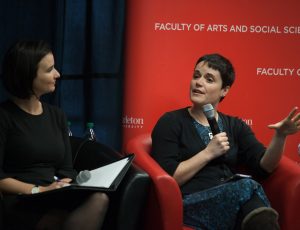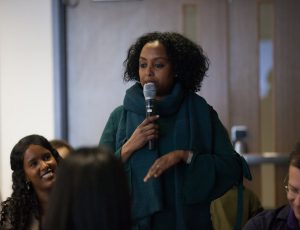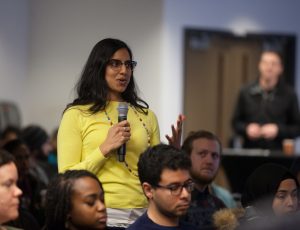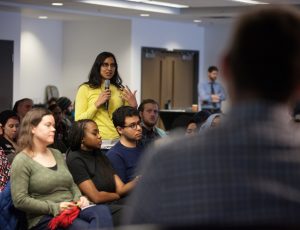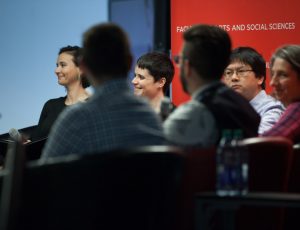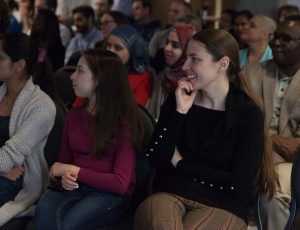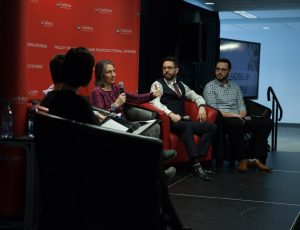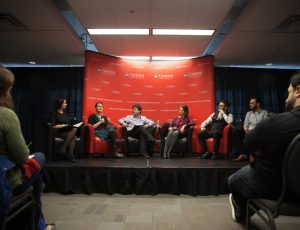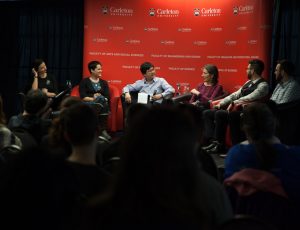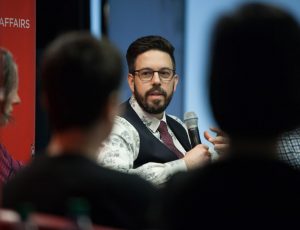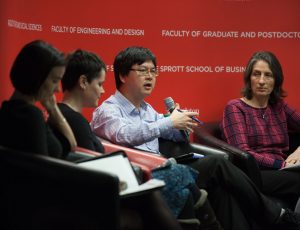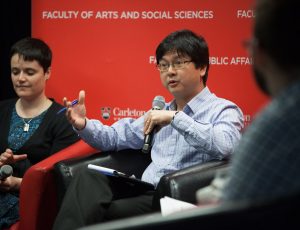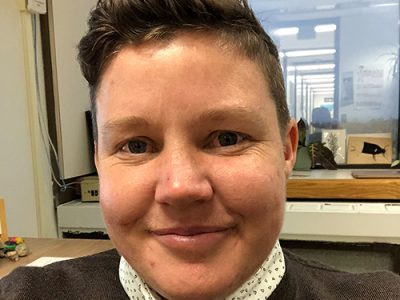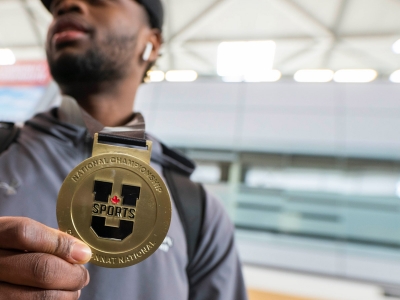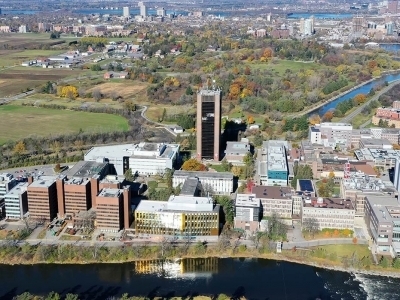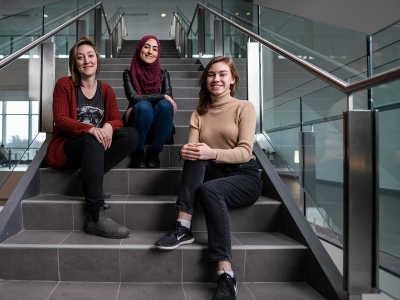By Leah Coppella
Photos by Fangliang Xu
Carleton University’s Faculty of Engineering and Design hosted a conversation about male allyship in STEM on Jan. 15, welcoming Carleton faculty, staff, students and members of the wider community to listen and learn from a panel of academic leaders and industry professionals.
The panel, moderated by Bailey Reid, advisor with Carleton’s Department of Equity and Inclusive Communities, included Gail Carmichael, Dr. Adrian Chan, Dr. Catherine Mavriplis, Ryan Millar and Sebastian Steven to the discussion.
The panel looked at the roles and responsibilities that men can have in creating positive change in the science and engineering field for women. The panelists offered advice on taking strong steps forward, but also cautioned against overstepping. They gave practical advice on being an ally while also commenting on how to challenge and overcome systemic barriers.
The Allyship Continuum
A major theme for discussion was the concept of an “allyship continuum,” and strategies to shift from the apathetic end of the spectrum to action and advocacy in our daily lives, including in the workplace.
Carmichael, Senior Technical Educator in RnD Learning at Shopify, says that male allyship in the workplace requires both a top-down approach and individual actions.
“I think that you need the leaders at the top to state that this is important…and in terms of bottom-up, we really do need to have buy-in from everybody individually and doing small things that add up.”
Chan, a professor with Carleton’s Department of Systems and Computer Engineering, says that while he is constantly aiming to be an ally, there have been times that he has been confronted with misogyny and was unaware how to react.
“Sometimes it takes me a while to process it… sometimes it’s also just discomfort because it’s hard to speak up and you’re also not too sure what to say or how to say it,” Chan says. “But I’ll have conversations with other males and say ‘I felt uncomfortable during that, did you feel the same thing?’ And having that reassurance that it’s not just you, that other people are experiencing the same thing, lets us talk about what we could do and how to prepare ourselves to be better the next time.”
Mavriplis, NSERC Chair for Women in Science and Engineering (ON) and mechanical engineering professor at the University of Ottawa says that the conversation can be “very uncomfortable for people”.
“It’s essential to have allyship from men, in engineering especially, to help us all move forward.”
Mavriplis adds that to get people engaged in becoming allies, there’s a business case for women in STEM.
“There’s a lot of research on financial performance of companies. They do better if there are women on their boards, if there are women in their highest levels of administration,” Mavriplis says. “There are examples of where diversity actually helps you do a better job, and in STEM’s case, it’s in innovation.”
Recognizing the Importance of Intersectionality when Discussing Male Allyship in STEM
Carmichael also highlighted the importance of intersectionality when discussing male allyship, especially in the workplace.
“For allyship to be effective, we also really need to consider marginalized communities as well and that means strategizing ways to engage those communities,” Carmichael says.
Ryan Millar, product manager at Gastops and Carleton alumnus, agreed that the workplace must work harder to advance voices that are not usually heard. He says that one of the best ways to move forward with male allyship is to talk about it in a positive light.
“What I’ve seen to be very successful at our place of work is celebrating allyship and highlighting the impact it’s had.”
Sebastian Steven, a fourth-year undergraduate health sciences student, and Co-President of the Health Science Society reflected on opportunities for active allyship in his student life, as well as the many challenges it brings. Steven says that students should take the time to reflect on interactions between male and female peers, in order to ensure that we are all allies for one another without overstepping boundaries.
Moderator Bailey Reid says she felt energized by the amount of people, especially men, who showed up to the event.
“I hope that people left feeling inspired and ready to create change in their own workspaces.”
Monday, January 20, 2020 in Faculty of Engineering and Design
Share: Twitter, Facebook
